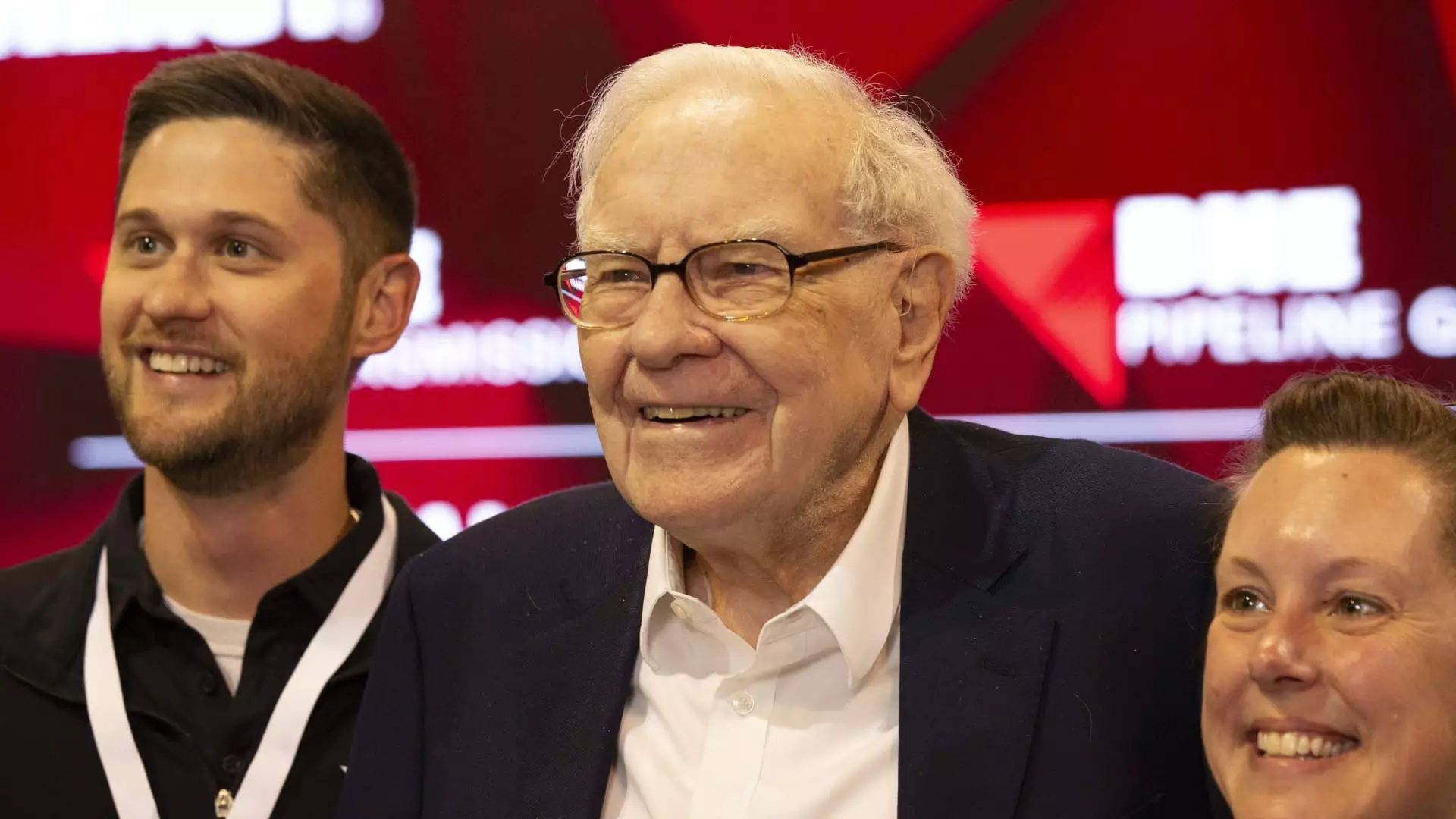Warren Buffett’s Berkshire Hathaway is making headlines once again as it amplifies its investment in SiriusXM, now holding a commanding 32% stake in the satellite radio company. This rise in ownership has been solidified through the acquisition of approximately 3.6 million shares, accumulating to around $87 million over a series of transactions. The recent financial maneuvers suggest a well-calculated decision from Buffett’s team, possibly influenced by the shifting dynamics within the audio entertainment sector, particularly following billionaire John Malone’s Liberty Media restructuring deal.
The context of this increased investment must be examined closely. Liberty Media’s recent merger activities, aimed at consolidating its audio divisions, play a crucial role in explaining Berkshire’s strategic pivot. The reorganization included significant changes, such as the separation of the Atlanta Braves into a standalone publicly traded entity, and a subsequent alteration of SiriusXM’s tracking stock structure. Such corporate movements often create lucrative opportunities, especially in the realm of merger arbitrage, which could be a motivating factor for Berkshire’s newfound interest in SiriusXM’s stock.
Despite Buffett’s engagement, SiriusXM faces considerable hurdles. The company has been struggling with subscriber attrition and shifts in demographics, challenges that have led to a lackluster reputation on Wall Street. Of the 14 analysts tracking the stock, a mere five assigned a “buy” rating. Analysts are increasingly skeptical of SiriusXM’s potential for long-term growth. A particularly noteworthy critique comes from JPMorgan, which recently downgraded SiriusXM to an underweight rating, voicing concerns about its capability to expand its customer base and improve its appeal among younger audiences.
Interestingly, Berkshire’s endorsement saw SiriusXM’s stock surge by 8% on the Monday following the announcement, presenting a mixed message about market confidence in the company. However, this bump doesn’t mask the stark reality: the stock has plummeted by over 50% this year. This scenario echoes Berkshire’s previous ventures into media investments, such as their 2022 acquisition of a non-voting stake in Paramount Global, which resulted in significant losses and ultimately led Buffett to reassess the profitability of media holdings.
Warren Buffett, at 94 years old, has established a reputation for his cautious investment philosophy, meticulously analyzing the long-term viability of the companies he backs. His previous experience with Paramount Global—where rapid shifts in viewer preferences compounded by fierce competition made it a regrettable investment—certainly weighs heavily on his current approach. Buffett’s reflections on the current landscape of streaming services highlight his awareness of the crowded market and its implications on spending behavior and profitability in the media arena.
In light of Buffett’s recent maneuvering, it raises questions regarding the long-term implications of Berkshire’s investment in SiriusXM. While the potential for rebound exists, coupled with strategic mergers in the industry, the underlying challenges cannot be overlooked. For investors, the key takeaway is the necessity of thorough market analysis and weighing the long-term value against immediate gains. As Berkshire Hathaway navigates this new chapter with SiriusXM, both the risks and rewards remain paramount considerations for astute investors eyeing opportunities in the evolving audio entertainment landscape.

